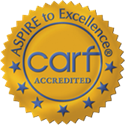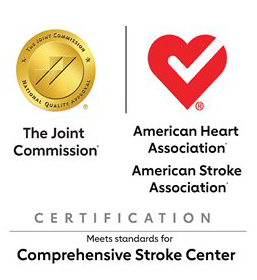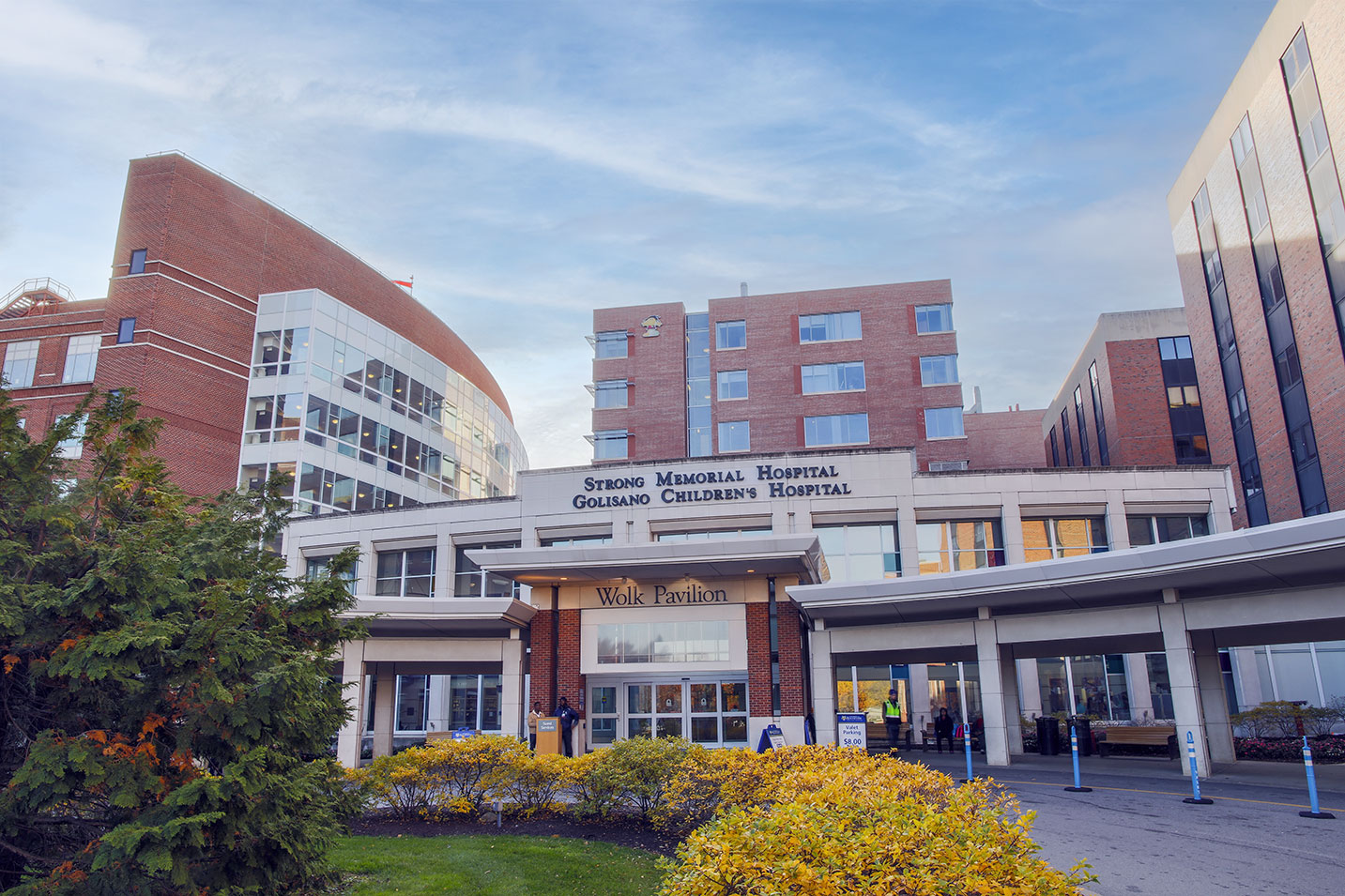Inpatient Acute Rehabilitation
Make Appointments & Get Care
What is Inpatient Acute Rehabilitation?
If you’re healing from medical treatment for a spinal cord injury, brain injury, stroke, or other disabling condition, acute inpatient rehabilitation helps you restore function and regain your independence.
The experience is designed to help you reach your goals and prepare you and your family for your return home.
UR Medicine's Approach
Our Specialty Programs
UR Medicine offers specialized programs for recovery from disabling conditions. We have staff that are uniquely qualified to guide recovery, to help patients improve or maintain function and improve overall health and quality of life.
- Spinal Cord Injury Rehabilitation
- Traumatic Brain Injury (TBI) or Acquired Brain Injury Rehabilitation
- Stroke Rehabilitation
- Pediatric Rehabilitation
- Medically Complex Rehabilitation
Our Staff and Services
The acute inpatient rehabilitation staff at UR Medicine’s Strong Memorial Hospital are dedicated to both the physical and emotional well-being of our patients. We have staff with extensive experience and training, including Fellowship-trained physicians and Certified Rehabilitation Registered Nurses, a designation reserved for the highest-level experts in rehabilitative care.
- Rehabilitation Medicine Physicians (Physiatrists) specialty trained in the management of the unique medical, physical, and mental impacts associated with various neurologic and medical conditions. They prescribe and oversee the treatment plan for each patient.
- Rehabilitation Nurses provide 24-hour care based on restorative principles – a nursing practice focused on helping patients live as safely and as independently as possible.
- Occupational therapists help you improve your ability to perform daily activities, such as bathing and dressing.
- Physical therapists work to improve your strength, balance, coordination, endurance and mobility.
- Speech therapists evaluate and treat challenges with swallowing, communication, and cognition.
- Rehabilitation Neuropsychologists can help you and your loved ones navigate the cognitive, emotional, behavioral, and pain issues that accompany adapting to an illness/injury.
- Social workers provide emotional support and education to patients and their families. They coordinate services and connect you to community resources.
- Recreational therapists use leisure activities to treat emotional, cognitive and physical challenges.
- Medical and surgical specialists: if Strong Memorial Hospital physicians provided acute medical treatment to you, they will be readily available to consult with your rehabilitation team, ensuring excellent coordination of care and communication.
- As the region’s premiere research, trauma and medical center, referrals are also available for any medical complications that may arise during your stay.
- Referrals are also available for many other services you may be interested in including Driving services, vocational services, substance abuse and community recreation.
- If you have questions about your insurance or your hospital charges, you can find helpful information on the URMC Pay Bill website.
Deciding What Type of Rehab is Right for You
Acute Inpatient Medical Rehabilitation, or hospital-based rehabilitation, is appropriate for patients who will benefit from an intensive, interdisciplinary rehabilitation program. Patients receive occupational therapy, physical therapy and speech therapy by specially trained physicians and nurses. In addition, we offer recreational therapy, misc therapy, neuropsychology, rehabilitation psychology, and chaplaincy. In contrast, subacute rehabilitation as a skilled nursing facility is less intense than acute rehabilitation.
To be eligible for Acute Rehabilitation at Strong Memorial Hospital, a person must:
- Be at least 6 years of age and over, and patients 5 years or younger will be considered on a case-by-case basis.
- Be referred by a physician
- Have significant functional deficits that require a multidisciplinary treatment team
- Have medical and nursing needs that require close daily oversight
- Be able to tolerate 3 hours of therapy 5 days per week
- Have the potential to achieve rehabilitation goals in a reasonable amount of time
- Have adequate social support and have the potential to return to a community setting
- Not require ventilator support or cardiac monitoring
- Be evaluated by a rehabilitation physician to verify admission criteria has been met
Consulting Service
In addition to providing care on the Inpatient Rehabilitation Unit, our physicians are available for consults to assist patients early in their recovery. Some reasons to consult us early during the hospital stay include:
- Brain injury/stroke recommendations (management of agitation, sleep-wake cycle regulation, medications for cognitive/communication deficits, addressing emotional adjustments)
- Spasticity management
- Neurogenic bowel and bladder from brain or spinal cord injuries
- Counseling patients before and/or after amputations and management of phantom limb pain following surgery
- Educating patients and family members on functional prognosis for recovery
Regardless of the next step following a patient’s hospital stay, our rehabilitation team can help provide education to patients and family members on the recommended next steps in the rehabilitation process and facilitate outpatient follow-up with our rehabilitation physicians and therapists. Our rehabilitation team is committed to helping patients through the continuum of care from the intensive care unit to living well in the community!

Miracle Kids 2025: Mary Sarah Hanna
Mary Sarah Hanna, the unit’s first pediatric patient, received expert rehabilitation care after a cardiac arrest caused a Hypoxic Brain Injury (HBI).
Patient Stories
Spinal Cord Injury Survivor
From the time I was first injured and came to Strong Memorial Hospital for my rehabilitation, it has been a place for continuous life resources. Not just the days I spent in the hospital but, every day since then. They are truly experts in the treatment of spinal cord injury, both physically and emotionally. They helped me to work through the devastating consequences of my injury and taught me how to manage these new changes. The entire team was supportive, knowledgeable and enthusiastic about my recovery.
What Sets Us Apart?
UR Medicine’s Acute Inpatient Rehabilitation Program is the most established rehabilitation program in the region.
The department of Physical Medicine and Rehabilitation gained accreditation from CARF (Commission on the Accreditation of Rehabilitation Facilities) and the Magnet Recognition Program (the gold standard of nursing), becoming the first of its kind in upstate New York to be integrated directly with both a Level 1 Trauma Center and a Joint Commission-certified Comprehensive Stroke Center. These designations reflect higher patient satisfaction and better patient outcomes.
As part of a leading academic medical center, we track our patients’ results, including functional improvement, level of satisfaction, and return to home. Our results rank among the highest in New York State.
Our Acute Inpatient Rehabilitation Program offers advanced technology to help patients make progress in their recovery. Our equipment includes:
- Robot technology that allows patients to practice movement.
- A computerized therapy system to improve cognitive and visual performance.
- A SafeGait, which is a ceiling-mounted body-weight support and fall protection system to help patients practice walking, improve strength, and overcome balance concerns.
- An apartment provides an environment for patients to practice activities of daily living.
- A car in our therapy gym allows patients and family members to practice transferring in and out of a vehicle.
Because we’re a nationally prominent academic medical center, our physicians remain on the cutting edge of medical treatment. We stay up to date on the latest techniques and research that is advancing rehabilitation care.
of 4
-
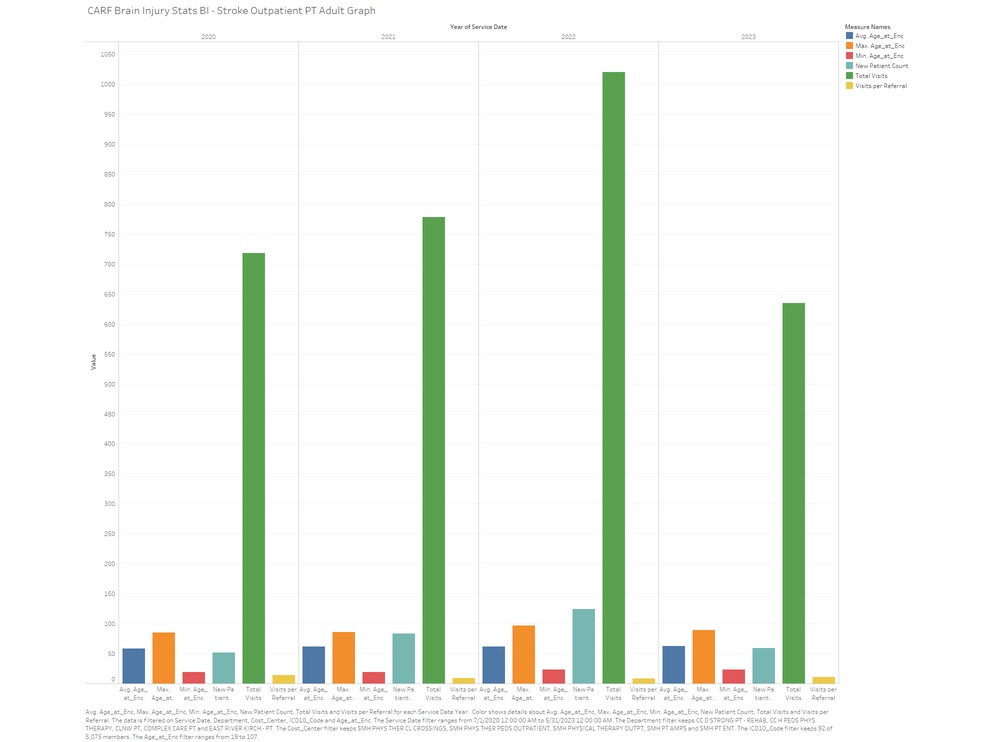
Image: Outpatient brain injury statistics - physical therapy
-

Image: Outpatient pediatric brain injury statistics - physical therapy
-

Image: Outpatient pediatric brain injury statistics - occupational therapy
-
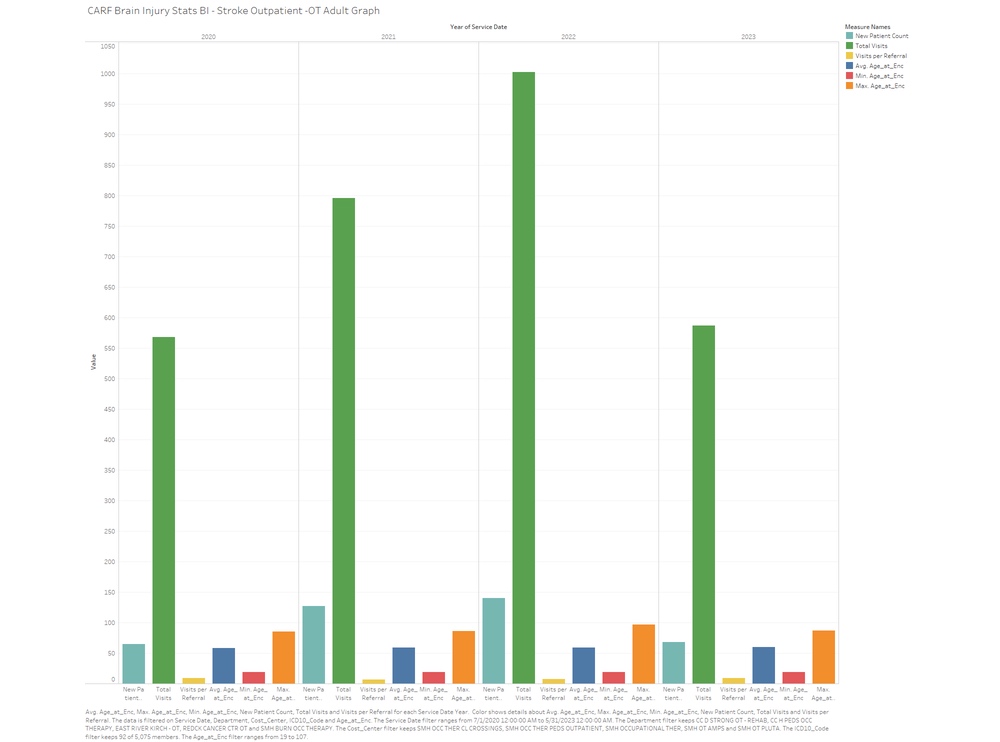
Image: Outpatient brain injury statistics - outpatient occupational therapy
Locations
View All LocationsWe serve you in the Rochester metropolitan area and surrounding region.
View All Locations2 locations
Acute Inpatient Rehabilitation Unit at Strong Memorial Hospital
601 Elmwood Avenue, Room 5-1200
Rochester, NY 14642
5901 Lac De Ville Boulevard
Rochester, NY 14618
Patient Education & Support
Related Services & Conditions
- Traumatic Brain Injury (TBI)
- Stroke
- Amputation Management
- Inpatient Acute Rehabilitation
- Spinal Cord Injury
- Adult Congenital Heart Disease
- Physical Medicine & Rehabilitation
- Spinal Cord Injury Rehabilitation
- Traumatic Brain Injury (TBI) or Acquired Brain Injury Rehabilitation
- Stroke Rehabilitation
- Medically Complex Rehabilitation
- Pediatric Rehabilitation
